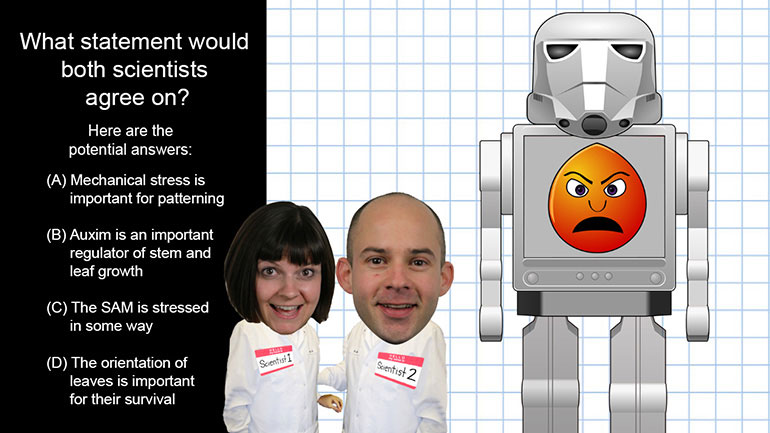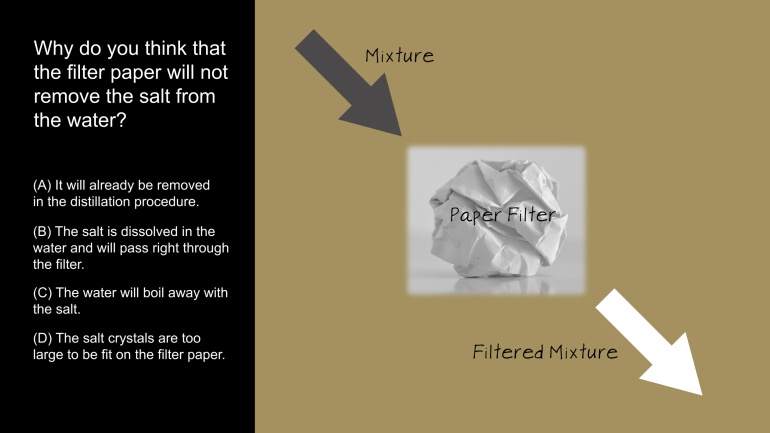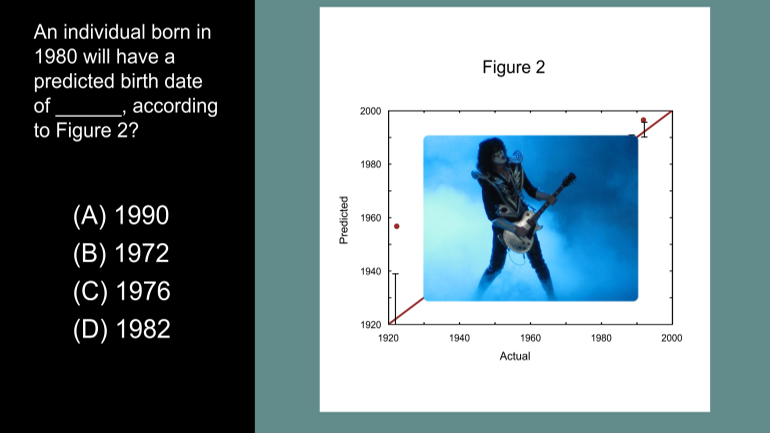ShmoopTube
Where Monty Python meets your 10th grade teacher.
Search Thousands of Shmoop Videos
ACT Science 4.2 Research Summary Passage 184 Views
Share It!
Description:
ACT Science: Research Summary Passage Drill 4, Problem 2. How many proteins are present in sample 1?
Transcript
- 00:03
Here’s your Shmoop du jour, brought to you by blue bands,
- 00:06
and no, we’re not talking about Rumours-era Fleetwood Mac…
- 00:09
but just try listening to “Silver Springs” without bawling your eyes out.
- 00:15
Here’s a passage about a technique used to separate proteins.
- 00:28
How many proteins are present in sample 1? And here are the potential answers…
Full Transcript
- 00:38
This question seems straightforward enough—it looks like we’re being asked to interpret
- 00:41
data and show that we know how to read the chart.
- 00:47
Remember in the passage where it said the control contains 5 proteins?
- 00:52
Well, looking at the figure, we can see that the control is the first column,
- 00:56
and that column contains 5 blue bands.
- 01:00
From this we can pretty well assume that blue bands are proteins.
- 01:04
As for the question, how many proteins are in sample 1, let’s just look and see.
- 01:08
Just one. A single, lone protein. All by itself.
- 01:15
Just like when Stevie Nicks and Lindsey Buckingham broke up.
- 01:18
Then again, they made their best music around that time.
- 01:20
So option A it is!
Up Next
ACT Science: Conflicting Viewpoint Passage Drill 1, Problem 1. What statement would both scientists agree upon?
Related Videos
ACT Science: Research Summary Passage Drill 2, Problem 1. Why do you think that the filter paper will not remove the salt from the water?
ACT Science Data Representation Passage: Drill 3, Problem 5. According to Figure 2, what birth date will be predicted for an individual actual...
ACT Science: Data Representation Passage Drill 1, Problem 2. Which of the following is a variable in Figure 1, but not in Figure 2?
ACT Science: Data Representation Passage Drill 1, Problem 1. What do the statistics in Figure 1 suggest?




